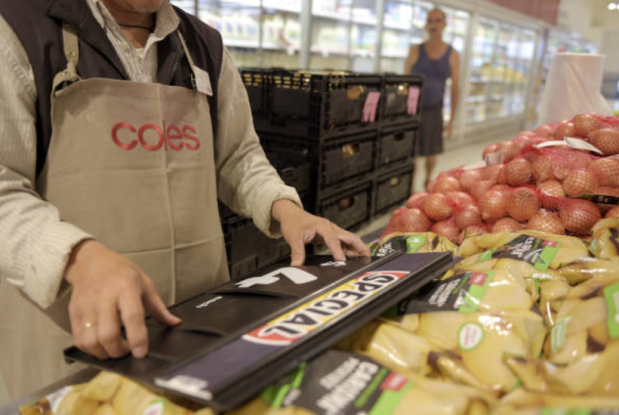With coronavirus and the government responses to it ravaging the country, there has never been a better time to abolish the pernicious and wasteful system that is compulsory superannuation.
For nearly three decades, Australian workers have had part of their wages confiscated and placed into a retirement savings account. This was supposed to wean people off the Age Pension by fostering private savings.
In reality, it has encouraged households to take on record levels of debt while their super accounts, which total around $3 trillion, are raided by financial services companies. In 2019, Australians lost an outrageous $32 billion in fees.
The super system is not so super. It reduces the pay and standards of living of ordinary Australians while providing a disproportionate benefit to wealthier individuals through tax concessions. It allows money to be funnelled into financial institutions rather than towards the mortgage or the kids’ school fees. It removes both the incentive and ability to take personal responsibility for savings and retirement planning.
Worst of all, as we are seeing right now, it hamstrings ordinary Australians in times of crisis.
On Wednesday last week alone, more than 280,000 people lodged an ‘intent to claim’ with Centrelink. According to a running tally from the Institute of Public Affairs, more than 96,657 people have been laid off or temporarily stood down as of Wednesday 26 March. Around 300,000 people who work in cafes, bars, clubs, gyms, zoos and so on can likely be added to that total.
One conservative estimate predicts that unemployment could hit 13.8 per cent if a quarter of people in only five industries lost their jobs. The highest unemployment rate ever recorded by the Australian Bureau of Statistics was 11.2 per cent in the wake of the 1990-91 recession.
An unemployment rate of 13.8 per cent would mean an additional 1.2 million people out of a job. This would be devastating for countless individuals, families and communities.
In an effort to mitigate this impact, the federal government has announced a raft of stimulus and support measures. However, they are unlikely to keep businesses open and workers employed.
The return of Pay As You Go tax withholdings, for example, is effectively a 20 per cent rebate for wages paid, but is capped at $100,000. This will hardly help a business struggling through the current lockdown measures – many have already been forced to close because they simply lack the cash to stay open.
To assist those who have already lost their jobs, the government has expanded eligibility for the new Jobseeker payment (which has replaced Newstart) and temporarily increased the amounts people can receive. The cost of these expanded welfare measures will be at least $24.5 billion.
The welfare system provides a safety net for individuals when they fall on hard times. That is a completely legitimate function of government, and the efforts to expand the capacity of welfare services is only right given the current circumstances.
The two $750 cash handouts, for example, which will be given to pensioners and Jobseeker recipients, among other groups, are a blunt and ineffective response. On average, pensioners are net savers, so the money is not likely to be injected into their local communities. Those communities have largely been locked up now anyway, so even if they wanted to, they cannot keep many businesses open.
Additionally, this does not assess people’s need. Some pensioners or veterans may not need the extra cash, while there are individuals and families worried about how they will cover their next mortgage repayment or rent instalment.
Public policies should be geared towards giving people the freedom to make decisions for themselves; after all, they know theirs and their family’s needs better than a faceless bureaucrat. And this is one of the reasons compulsory Super should be abolished.
For a two-income family where one person has just lost their job, the other could put the extra money towards tying the household over while things are tough. A single mother who struggles from paycheque to pay cheque would be empowered to put a little bit of money aside, or not have to be so anxious when an unexpected bill comes around.
Forcing workers to put almost ten per cent of their wages into an account they cannot touch, where it is preyed upon by financial companies, is not a sensible national savings scheme. Super is a poor set up for simple economic reasons – it costs the government far more in tax concessions than it saves in pension spending – but it is also an immoral system.
The transfer of wealth from ordinary workers towards bankers and financiers is pernicious. During crises, exactly like the one we are living through, this injustice is made starker as people are forced to wait in line for Centrelink while a chunk of their hard-earned savings sits out of reach.
Abolishing Compulsory Super will enable Australians to better prepare for future economic shocks. It will leave them with more money in their pocket at the end of each week, giving them the dignity to make their own decisions for how their money is saved or spent.
John Gray is the executive director of the H. R. Nicholls Society.
Got something to add? Join the discussion and comment below.
Got something to add? Join the discussion and comment below.
Get 10 issues for just $10
Subscribe to The Spectator Australia today for the next 10 magazine issues, plus full online access, for just $10.


























Comments
Don't miss out
Join the conversation with other Spectator Australia readers. Subscribe to leave a comment.
SUBSCRIBEAlready a subscriber? Log in